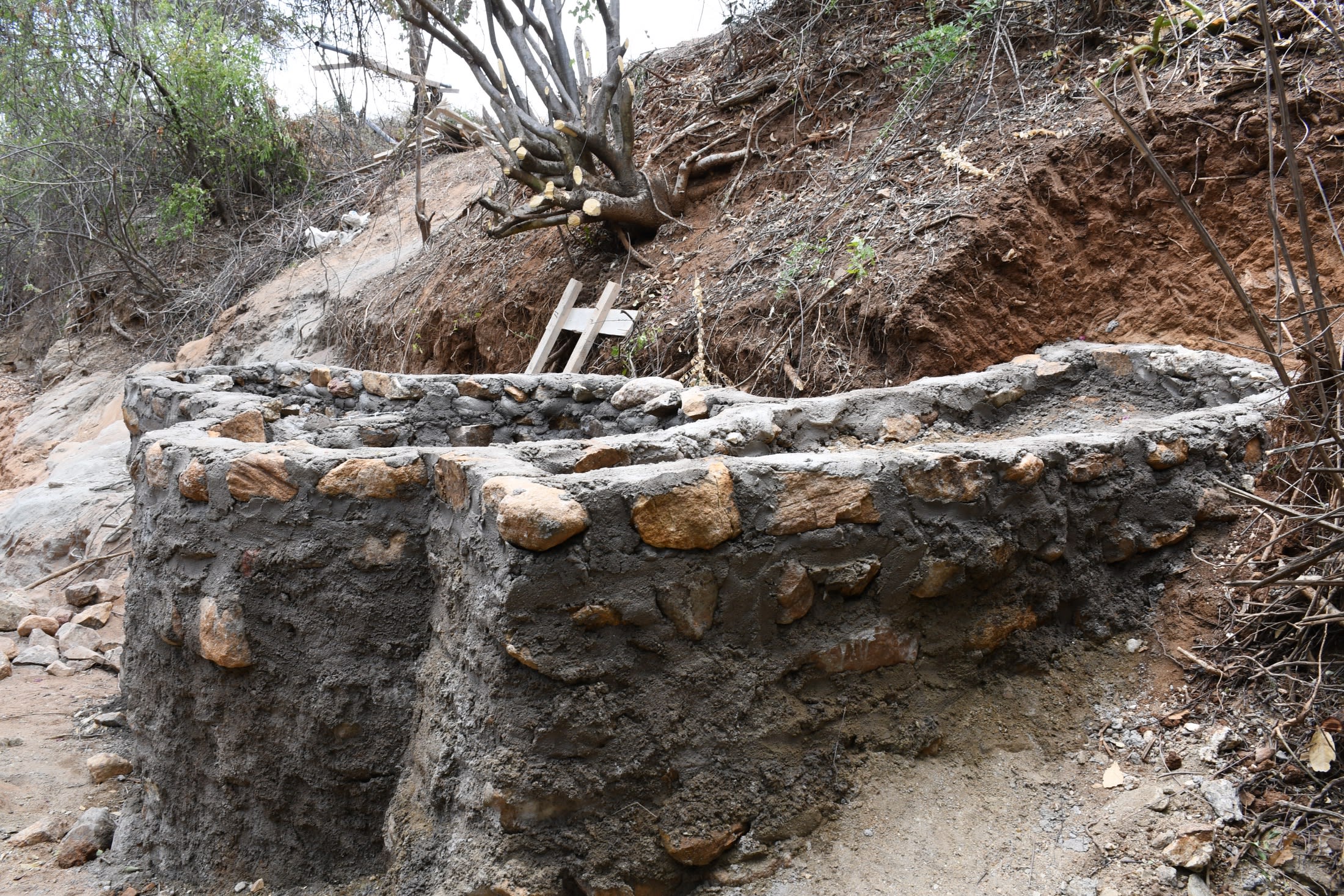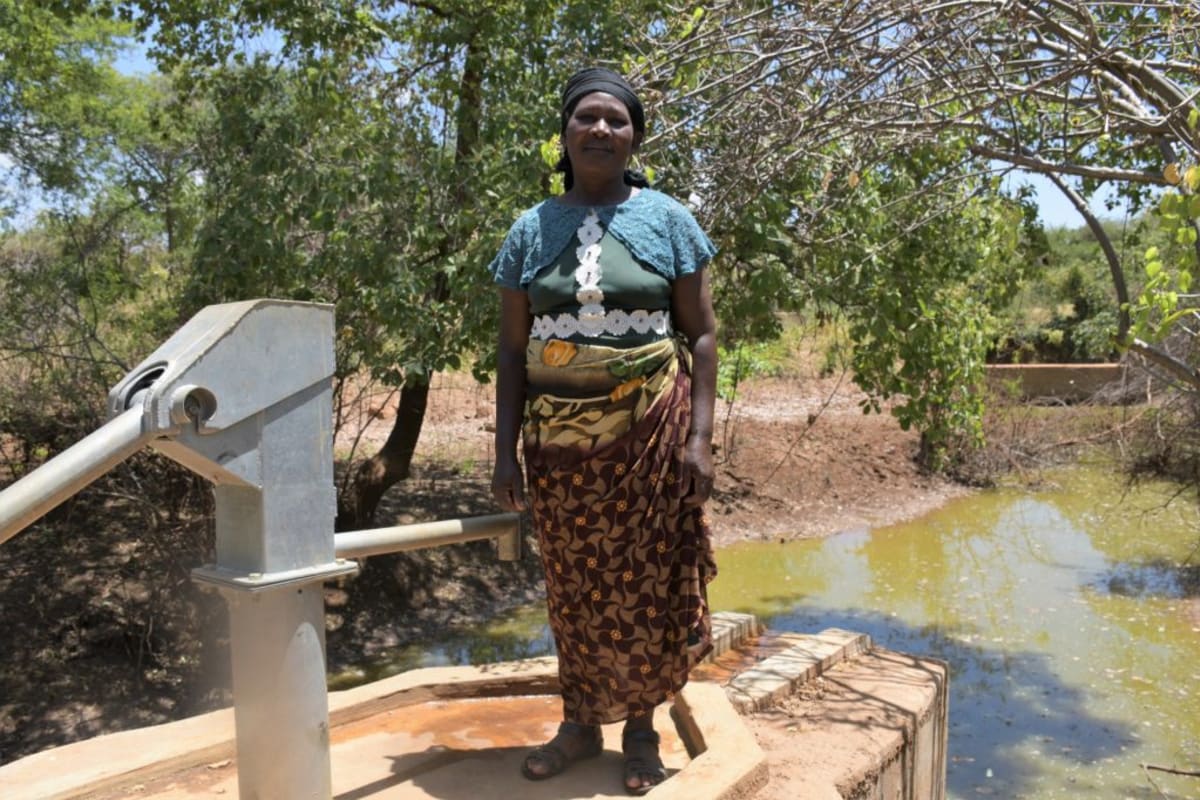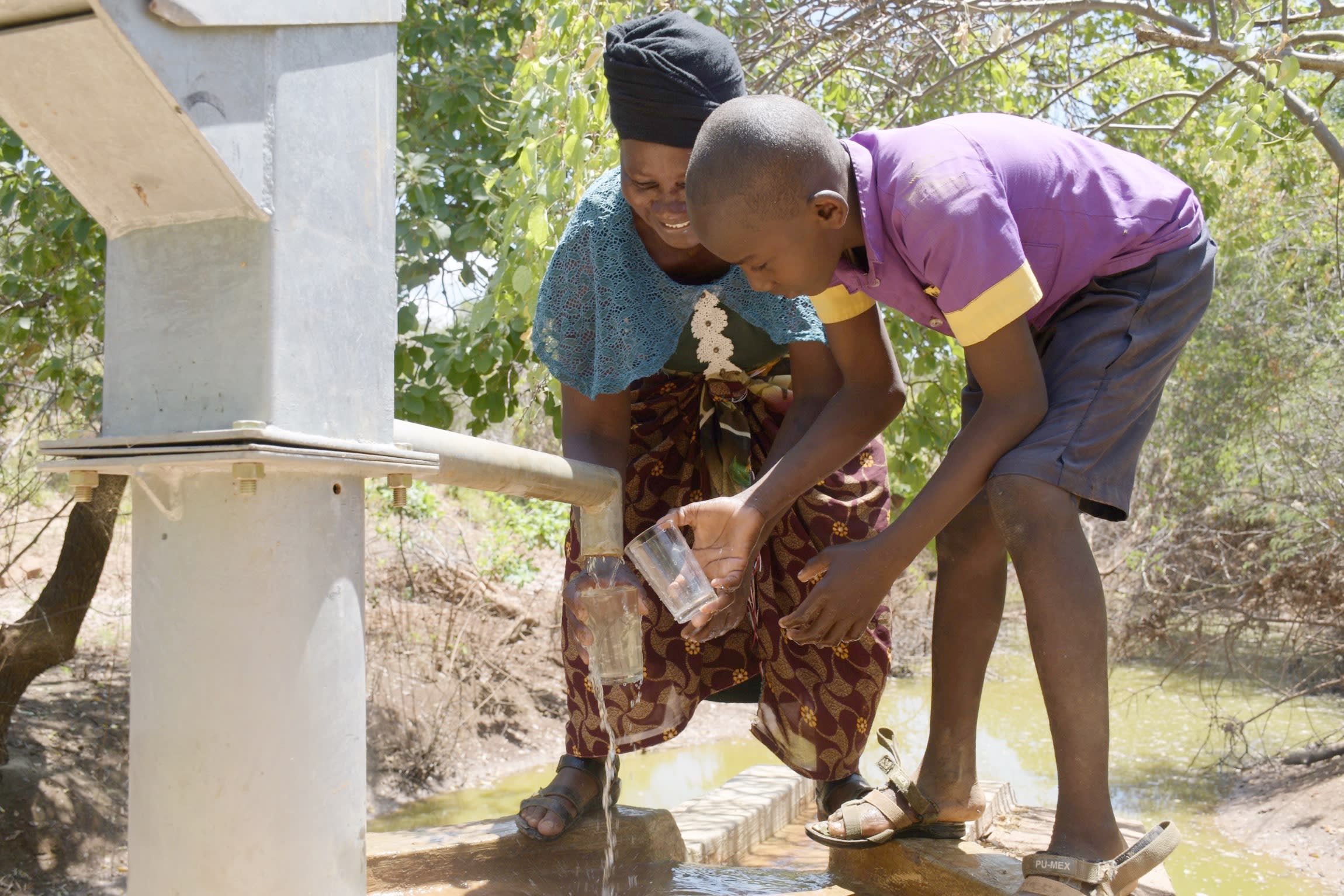On an average day for the 470 community members in Syonzale, the women wake up early in the morning to prepare breakfast for the family as the children prepare to go to school. Syonzale is found in a quiet, rural location which has a relatively flat terrain. The households are sparsely populated with large distances between homes. Most people here make a living working as farmers who sell their produce and livestock at the local market.
Before making breakfast, most women will go to fetch water at the best possible source, which usually is the nearest riverbed, depending on the time of the year. Unpredictable rainfall patterns cannot guarantee water for communities year-round as most rivers in the Kitui County are seasonal.
To address this problem here, we are working with the Syiluluku Self-Help Group, which is comprised of households that are working together to address water and food scarcity in their region. These members are our hands and feet in both constructing water projects and spreading the message of good hygiene and sanitation to everyone in this area.
The self-help group members recently completed their first project with us, but that dam and well alone are not enough to support everyone here. People will have access to water through the first project, but there are still hundreds of people that have to travel long distances to get water.
"The first project is helping provide water to us and it is important for the whole village to have a practical example of a functional project, but we are not where we want to be yet because water shortages are still prevalent in our village and area at large. We remain committed to working on more projects aimed at bringing water close to every household in our locality which will lead to improved lives," said Ngina David.
Kavindu Mutua, a farmer in the community shared similar sentiments about a commitment to bringing water to more people.
"After the implementation of our first water project, it is working well and providing us with clean water for use at the household level," he said.
"We now understand the importance of such a project. We are working hard to jointly implement more projects within the village so that everyone can have easy access to water and improve our lives."
Reliable Water for Syonzale
Hand-Dug Well
This particular hand-dug well will be built adjacent to a sand dam project, which will supply clean drinking water once it rains. We have supplied the group with the tools needed for excavation. With the guidance of our artisans and mechanics, the excavated well will be cased, sealed with a well pad, and then finished with a new AfriDev pump.
Excavation takes a month or more on average, depending on the nature of the rock beneath. Construction of the well lining and installation of the pump takes 12 days maximum. The well will be lined with a concrete wall including perforations so that once it rains, water will filter in from the sand dam.
This well will be located in Syonzale Village and will bring clean water closer to families.
New Knowledge
These community members currently do their best to practice good hygiene and sanitation, but their severe lack of water has been a big hindrance to reaching their fullest potential.
We will hold hygiene and sanitation training sessions with the Syiluluku Self-Help Group and other community members to teach about important hygiene practices and daily habits to establish at the personal, household, and community levels. This training will help to ensure that participants have the knowledge they need to make the most out of their new water point as soon as the water is flowing.
One of the most important topics we plan to cover is the handling, storage, and treatment of water. Having a clean water source will be extremely helpful, but it is useless if water gets contaminated by the time it is consumed. We will also emphasize the importance of handwashing.
We and the community strongly believe that all of these components will work together to improve living standards here, which will help to unlock the potential for these community members to live better, healthier lives.
We typically work with self-help groups for 3 to 5 years on multiple water projects. We will conduct follow-up visits and refresher trainings during this period and remain in contact with the group after all of the projects are completed to support their efforts to improve sanitation and hygiene.

 Protected Dug Well
Protected Dug Well
 Rehabilitation Project
Rehabilitation Project

































